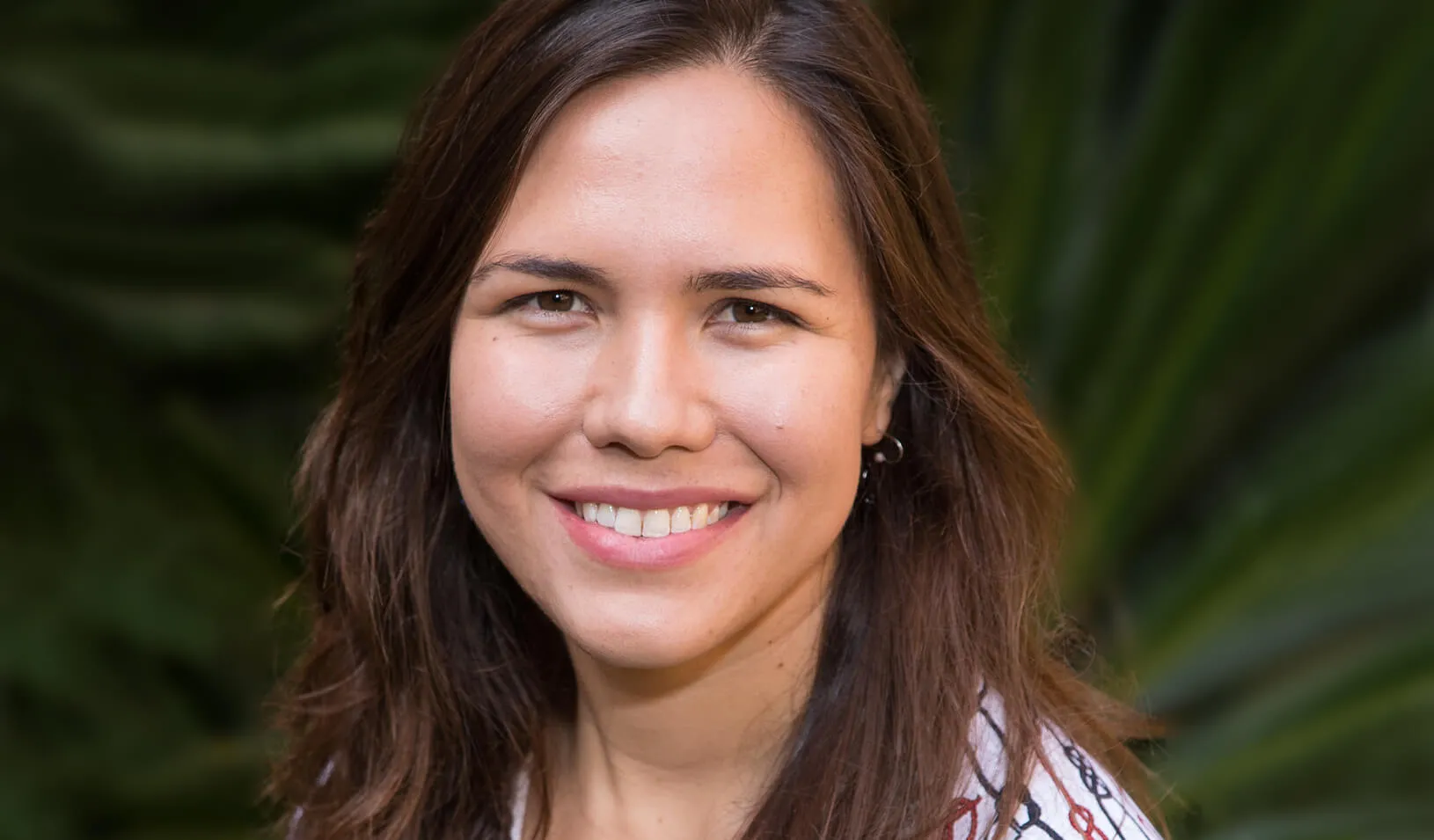October 09, 2018
One of five Siebel Scholars in the Stanford GSB Class of 2019, Jennifer Villa attended Duke University, where she graduated summa cum laude with a dual major in electrical engineering and biomedical engineering. She worked on microprocessor architecture at Intel, helping design the next generation of the company’s line of Atom CPUs. Villa is a student in Stanford’s MS in Computer Science/MBA joint degree program. She cares deeply about improving diversity in engineering organizations and developed a talk on this topic as part of Stanford GSB’s LOWkeynotes program. Originally from Miami, Villa is happiest on the beach or a boat, eating Cuban food, or dancing salsa.
Which Stanford GSB class did you find the most challenging?
“Touchy Feely,” or Interpersonal Dynamics. Coming from an engineering background, I was able to handle the quant-heavy classes well, but Touchy Feely forced me to develop a completely different skill set. I’ve never been particularly good at articulating my feelings in conversation, and I’m highly non-confrontational. I spent most of the quarter focusing on these two areas, and with the help of my T-group, I was able to make progress — though not without numerous blunders along the way.
What most surprised you about Stanford GSB?
The degree to which people will go out of their way to help each other out. Need someone who can advise you on marketing strategy for a boutique grocery chain? Ping Blast or Slack, and I guarantee someone will be happy to chat over a cup of coffee or knows someone they can introduce you to. I was initially nervous to ask for fear of wasting people’s time, but everyone who helped me did so with such eagerness and graciousness that my fears have been assuaged. In return, I’ve tried to do the same for people who have sought my time.
Which class has transformed the way you think about a topic?
Building and Managing Sales Organizations was an eye-opener. Coming from an engineering background, I didn’t understand the importance of sales. My mentality was always, “If you build it, they will come.” After the class, I came to realize how infrequently that actually happens and how proper sales strategy can make or break fledgling companies. We discussed a number of important topics like how to design compensation plans to incentivize the right behaviors, as well as the advantages and disadvantages of different sales channels. Based on my average performance in the sales simulations we ran, I’m probably not cut out to be a rep, but at least I know now what to look for in one.
What was your first job?
My first job was as a camp counselor for a summer robotics program offered by the Miami Museum of Science. I wouldn’t say it revolutionized my worldview, but it certainly cemented my love of robotics and engineering. I’d been a camper in the program years earlier, so my other takeaway was that knowing how to do something and being able to teach it are two very different challenges. While I had been quick to figure out how to build on my own, explaining it to young kids in a way that was both straightforward and fun took practice.
What’s your ideal travel destination?
Lake Tahoe. As a Miami native, I’ve always loved boats and being out on the water. In Tahoe, I can get that familiar element of home but also be surrounded by breathtaking mountains, which I have only started to appreciate since moving to California. A great day for me starts with getting outdoors — hiking, boating, running, swimming — and ends back at a big house with steaks on the grill, a couple bottles of wine, and great conversation with friends.
— Jenny Luna
About Siebel Scholars
Established in 2000 by the Thomas and Stacey Siebel Foundation, the Siebel Scholars program awards grants to leading universities in the United States, China, France, Italy, and Japan. Following a competitive review process by the deans of their respective schools on the basis of outstanding academic achievement and demonstrated leadership, the top graduate students from 27 partner programs are selected each year as Siebel Scholars. On average, Siebel Scholars rank in the top 5% of their class, many within the top 1%.
About the Siebel Foundation
The Thomas and Stacey Siebel Foundation, a nonprofit, public benefit corporation, was established as a private foundation in 1996. Its mission is to foster programs and organizations that improve the quality of life, environment, and education of its community members. The Siebel Foundation funds projects to support the homeless and underprivileged, education and research, public health, and alternative energy solutions.
For media inquiries, visit the Newsroom.



